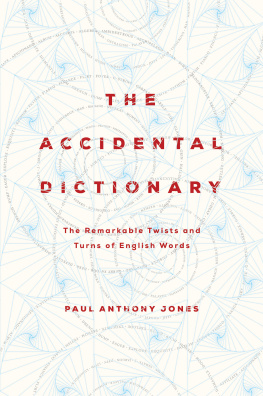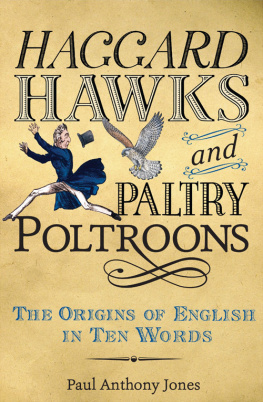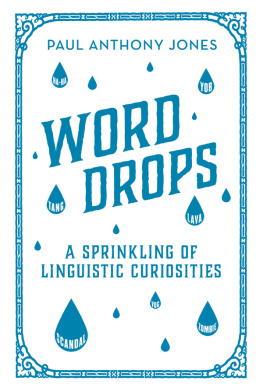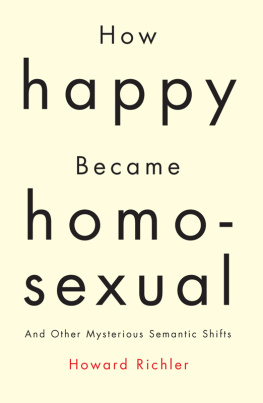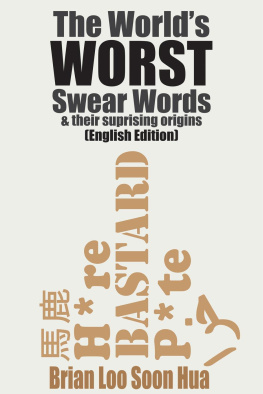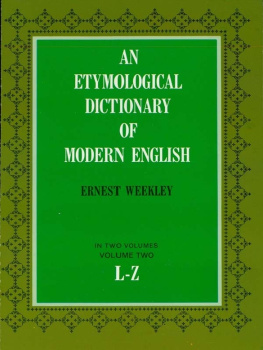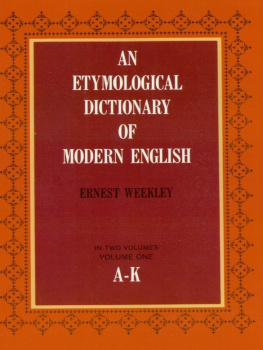
originally meant to adopt a child
Affiliate is a word whose etymological journey has taken it from rather humble and straightforward beginnings in the early 1600s, through to the ultra-modern worlds of e-commerce and online marketing. A typical twenty-first-century glossary of business-speak or internet jargon full of the kinds of words that once you learn their meaning, you really wish you hadnt will include entries for affiliate networks, affiliate trackers and affiliate aggregators. Websites will send you affiliate links. Internet marketing aficionados (more on those in a moment) will talk of affiliate cloaking. Online companies will sign affiliation agreements. Its all absolutely riveting.
That hasnt always been the case of course the word affiliate is four centuries old, after all. But even in these jargonish contemporary applications, the words basic meaning survives: as a verb, affiliate means do connect, to join or to cooperate with, while as a noun its a synonym of words such as associate, colleague and partner. Either way, its clearly concerned with association and incorporation, partnership and community. Keeping things in a family, you could say which is, in fact, precisely what it once meant.
At the centre of the word affiliate is the Latin word for son, filius, an etymological root that it shares with the likes of filial and filicide, as well as a host of superbly obscure words such as filionymic (a name derived from that of your son) and filiopietism (excessive veneration of your ancestors). When it first appeared in the language in the early seventeenth century, affiliate meant to adopt a child or, as the English lexicographer Henry Cockeram defined it in his brilliantly titled English Dictionarie, or an Interpreter of Hard English Words (1623), to choose one for his son.
This original meaning steadily developed so that by the mid 1700s affiliate had come to be used to mean to ascertain the parenthood of a child making affiliation essentially eighteenth-century legalese for a paternity test. As one London newspaper reported in 1798, an appropriately named Mr Law had recently appeared in court with an affidavit which stated that Mary Walker came to him in order to affiliate a bastard child, while an 1842 digest of legal cases on the Isle of Man declared that:
By the common law of the Isle of Man... a widow is entitled to dower only dum sola et casta vixerit[as long as she stays unmarried and chaste], and was held to have forfeited it by the birth and affiliation of a bastard child.
Blimey, they really didnt mince their words back then.
Although uncommon, this legal use of affiliate still survives today, but it is the broader, more generalised use of affiliate to mean merely to connect to or to become associated with a figurative development that first emerged in the mid 1700s that has since established itself the words most familiar meaning.
originally meant amateur
If all that talk of affiliate aggregators and affiliation agreements leaves you clueless, you could always turn to an online aficionado to help you out. Thats because an aficionado is an expert, right? A connoisseur. A die-hard follower. Someone who knows so much about a certain subject that theyre the go-to authority on it. Well, that might be the case today, but originally things were quite different.
Take this line from a letter written in 1797 by a German travel writer named Frederick Augustus Fischer, after he had attended a bullfight in Bilbao, Spain:
At each end of the square an amphitheatre was erected, and the whole enclosed with palisades. The benches and balconies on either side bent under the weight of the spectators... the square itself was a crowd of aficionados or amateurs, who came there to be active in striking the bulls, but so as to escape in case of need by leaping over the palisades.
Frankly, if an enraged bull were running towards you then leaping out of the amphitheatre might be a better idea than leaping over the palisades. But improvised escape routes aside, there is an odd juxtaposition of words here: how does a crowd of aficionados or amateurs make sense? Surely if youre an aficionado, youre no longer an amateur?
It will come as little surprise to find that aficionado was borrowed into English from Spanish, a little over 200 years ago in fact, the 1802 English edition of Fischers Travels in Spain gives us our earliest written record of it. But in its native Spanish, the word dates back to the fifteenth century and has its origins in an even older word, aficin, meaning affection, fondness or inclination. That made an aficionado originally just an enthusiast namely someone who enjoyed or supported, or else had a fondness for or an interest in, some particular pursuit, pastime or philosophy. But if you really enjoy something, it might be only a matter of time before you decide to try it out for yourself.
That might not include bullfighting, admittedly, but the aficionados mentioned by Fischer had nevertheless turned up ringside to try their hand at a little tauromachy, and take pot-shots at the luckless bulls in the bullring. Through association with them, the word aficionado soon came to refer to what we might now call an amateur practitioner or a dabbler, and in that sense became particularly attached to bullfighting: by the mid 1600s, it was being used in its native Spanish to refer specifically to an amateur bullfighter, and it was this meaning that was imported into English, via Fischers travelogue, in the early 1800s.
But, as the saying goes, practice makes perfect. Try your hand at something, perhaps even bullfighting, for long enough and you will soon see yourself improving. Consequently, by the mid nineteenth century aficionado had begun to be used to refer to any ardent, experienced and knowledgeable devotee or fanatic, regardless of the discipline involved. And it is that meaning, rather than the original, that has survived through to English today.

originally meant a blank stone tablet
Imagine pressing play on your favourite album and hearing nothing. Total silence. Unless youre a John Cage fan, the chances are that there would be something amiss. But etymologically, it would make perfect sense.
Album is a derivative of the Latin word for white, albus. Thats also where the albumen of an egg takes its name, as well as albinism, a priests alb, and the albedo or quantity of light reflected by a surface. Its also, somewhat confusingly, where the word auburn originated, long before it lost the L and, thanks to three centuries of being spelled aborne, became confused with the colour brown.
But back to albums. In Ancient Rome, the Latin word album was used to refer to a blank stone tablet or board, either naturally white or painted white, on which important edicts and other publicly significant records such as lists of magistrates or the events of the year would be written. In this sense, it was particularly associated with the highest of the high priests, the pontifex maximus, who would display his personal records, or annales maximi, on a series of albums outside his home.
But when the Roman Empire collapsed, it took the word album with it. It languished in one of the dustier corners of the dictionary for more than a thousand years, until a curious trend emerged in mid-sixteenth-century Europe: in an otherwise blank notebook known as an
Next page
